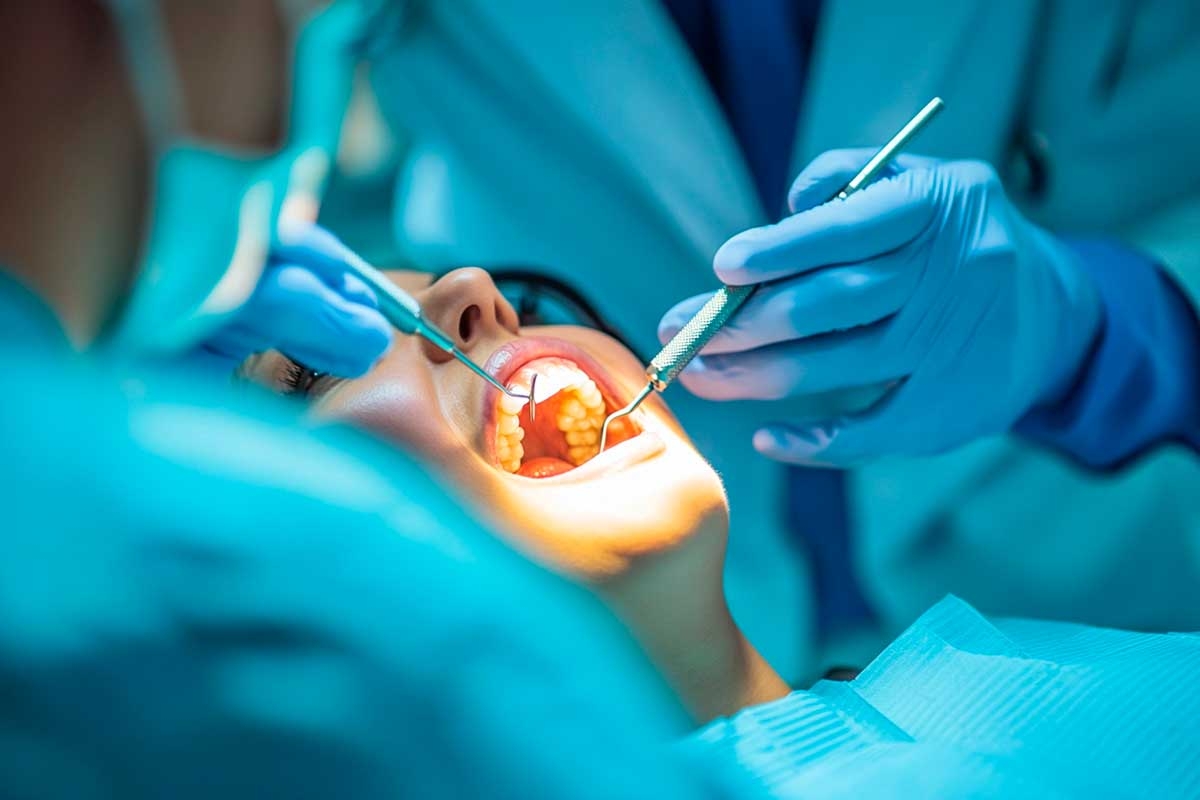
Periodontist
Watch our video about Periodontist
A periodontist is a dental specialist focused on preventing, diagnosing, and treating diseases that affect the gums and supporting structures of the teeth, including the alveolar bone and periodontal ligament.
This specialist plays a vital role in oral health since gum diseases can lead to tooth loss and contribute to overall health issues, including cardiovascular diseases and diabetes.
What Diseases Does a Periodontist Treat?
A periodontist treats various conditions related to gum health and the supporting dental structures, including:
- Gingivitis – Mild gum inflammation that causes redness and bleeding.
- Periodontitis – A severe gum infection that can lead to tissue and bone damage.
- Gum Recession – The gums pull away from the teeth, exposing the roots and increasing sensitivity.
- Periodontal Abscess – A pus-filled infection around the gums and teeth.
- Loose Teeth Due to Gum Disease – Loss of tissue support causes teeth to become mobile.
- Bacterial Infections in the Gums – Infections that can lead to the destruction of gum and bone tissues.
- Gummy Smile Correction – Treatment for excessive gum exposure that affects aesthetics.
Periodontists also manage gum problems linked to systemic conditions, such as diabetes and osteoporosis.
How Can a Periodontist Help?
A periodontist provides various treatments and procedures to maintain healthy gums and teeth, including:
- Early diagnosis and treatment of gum disease to prevent severe complications.
- Deep cleaning procedures like scaling and root planing to remove plaque and tartar buildup.
- Surgical periodontal treatments to regenerate damaged gum tissue and bone.
- Gum grafting to cover exposed roots and prevent further gum recession.
- Dental implant placement to replace lost teeth due to gum disease.
- Cosmetic gum procedures, such as reshaping excessive gum tissue.
- Guidance on oral hygiene habits to maintain long-term gum health.
What Tests Does a Periodontist Request?
A periodontist may order various tests and examinations to assess gum health, including:
- Clinical Gum Examination – Evaluates gum inflammation, bleeding, and pocket depth.
- Panoramic Dental X-Ray – Assesses alveolar bone condition and detects periodontal damage.
- Bacterial Testing – Identifies harmful bacteria responsible for gum infections.
- Genetic Testing – Determines genetic predisposition to periodontal disease.
- Blood Tests for Inflammation – Detects systemic links between gum disease and overall health.
- Tooth Mobility Test – Evaluates the degree of tooth looseness due to gum issues.
- Gum and Tooth Structure Assessment – Checks for changes in gum shape and tooth alignment.
When to See a Periodontist?
It is crucial to see a periodontist if you experience any of the following signs:
- Bleeding Gums While Brushing or Eating – Frequent gum bleeding can indicate gingivitis or periodontitis.
- Persistent Bad Breath (Halitosis) – Gum infections can cause chronic bad breath despite good oral hygiene.
- Swollen, Red, or Painful Gums – Inflammation or pain in the gums may signal an ongoing infection.
- Loose or Shifting Teeth – If teeth feel wobbly or misaligned, it may be due to deteriorating gum support.
- Gum Recession (Exposed Tooth Roots) – Receding gums can lead to tooth sensitivity and increased risk of decay.
- Presence of Pus Around the Gums – Pus formation is a sign of a severe infection that requires immediate attention.
- Planning for Dental Implants – Healthy gums are essential for a successful implant procedure.
Ignoring these symptoms can lead to permanent tooth loss and increased risks for other health complications.
How to Prevent Gum Disease?
Preventing periodontal disease involves good oral hygiene habits and regular dental care, including:
- Brushing teeth at least twice daily with proper technique.
- Flossing daily to remove plaque between teeth.
- Regular professional cleanings every six months.
- Avoiding smoking and excessive alcohol consumption.
- Maintaining a healthy diet rich in vitamin C and calcium.
- Managing chronic conditions like diabetes that can worsen gum disease.
- Scheduling routine periodontal check-ups for early disease detection.
What to Ask a Periodontist During the First Consultation?
When visiting a periodontist, consider asking the following questions to better understand your gum health:
- Are my gums healthy, or do I have signs of periodontal disease?
- What is causing my gum issues?
- Do I need specific treatments, or is a deep cleaning enough?
- What oral hygiene routine should I follow at home?
- Are there any risks associated with my gum condition?
- How long will my treatment take, and will I need multiple sessions?
- What are the possible side effects of the recommended treatments?
Schedule a Consultation with a Periodontist at Clinic Consultation
Clinic Consultation offers specialized periodontist services with comprehensive treatment options for gum disease, prevention, and cosmetic gum procedures. If you are experiencing gum-related issues or want to maintain optimal oral health, our experts provide safe, effective, and personalized care.
📅 Book your consultation with a periodontist today and maintain healthy gums and teeth with expert periodontal care!
Click here to schedule an appointment online